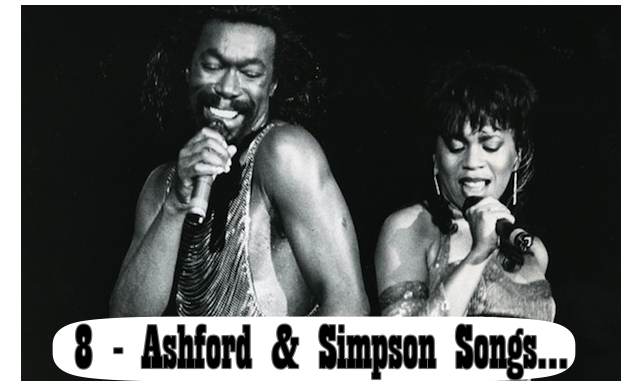(ThyBlackMan.com) Most career experts say that one should not follow the “references upon request” approach, it’s still essential to have some reliable people as references to share with employers. But before you hand over the list of job references to a potential employer, here are the things you need to know about job references.
Prepare your references well
Don’t just ask for a job reference, discuss what you need them to comment on or what they should focus on when speaking to your potential employer. Many people just assume that getting job references or putting their names on a resume is enough. Discuss what type of company you are getting interviewed at and for what profile. You probably don’t want to find out later that they said nothing worthy of attention when you were expecting something outstanding.
Not all job references are good
The easiest way to earn a good reference is by asking for it to someone you know well. This is arguably not the best way to ask for a job reference. Assuming that you will get a good reference from someone you share a good bond with is like taking a shot in the dark. Preparing your references well is not about discussing whether they will say good things about you. It is about focusing on what they are going to tell and whether they genuinely feel what they are expected to say. Experienced recruiters say that checking on references has saved them from making big mistakes.
Be in touch
One common mistake a lot of job seekers make is that they don’t stay in touch with their job references. It is important to keep your references informed so that they can be prepared if they get called sometime in the future. If you’re adding someone’s name to your list of references, make sure to ask for approval to be your reference. Also, keep your personal and professional references separate and highlight them separately in your application as well. If a reference is contacted when he’s not prepared, their feedback could be unexpected.
Network appropriately
If you are currently working for someone and are actively looking for a change, this one’s for you. The corporate space is a dog eat dog world so it is important for you to build a strong, healthy network at your workplace. Even if you are not considering a job change at present, you can be sure that if you eventually end up seeking new opportunities, there will be some strong references to support you. Many job seekers have faced situations where their references were also actively looking for jobs turning the reference check call into a job opportunity for themselves.
Hold back
Your professional references are a valuable resource and holding back this limited resource is good for you. Offering references when you’re asked shows that you care about the time of your colleagues and past managers. Always use your job reference list at the right place otherwise your references will end up becoming a part of some company’s marketing list. This could potentially harm your professional relationships and could badly affect their feedback.
Be careful about personal references
Do not use your relatives as a reference for a job. Add your college professor, someone from an organization where you volunteer or a fellow intern. Recruiters want to see whether you are a good human being or not. The best judgment can be based on feedback received from people outside of your family, friend circle, and relatives.
Just be honest
Recruiters can call anyone from your list. They can check on companies where you worked in the past. They can also use their own connections and network to find out whether you are the most suitable candidate for the job or they should continue looking for a candidate. Do not expect recruiters to just call only the people you have listed. Reference checks often go beyond calls and social media profiles.
Job Reference: Things You Need To Know Before You Ask For It
Most career experts say that one should not follow the “references upon request” approach, it’s still essential to have some reliable people as references to share with employers. But before you hand over the list of job references to a potential employer, here are the things you need to know about job references.
Prepare your references well
Don’t just ask for a job reference, discuss what you need them to comment on or what they should focus on when speaking to your potential employer. Many people just assume that getting job references or putting their names on a resume is enough. Discuss what type of company you are getting interviewed at and for what profile. You probably don’t want to find out later that they said nothing worthy of attention when you were expecting something outstanding.
Not all job references are good
The easiest way to earn a good reference is by asking for it to someone you know well. This is arguably not the best way to ask for a job reference. Assuming that you will get a good reference from someone you share a good bond with is like taking a shot in the dark. Preparing your references well is not about discussing whether they will say good things about you. It is about focusing on what they are going to tell and whether they genuinely feel what they are expected to say. Experienced recruiters say that checking on references has saved them from making big mistakes.
Be in touch
One common mistake a lot of job seekers make is that they don’t stay in touch with their job references. It is important to keep your references informed so that they can be prepared if they get called sometime in the future. If you’re adding someone’s name to your list of references, make sure to ask for approval to be your reference. Also, keep your personal and professional references separate and highlight them separately in your application as well. If a reference is contacted when he’s not prepared, their feedback could be unexpected.
Network appropriately
If you are currently working for someone and are actively looking for a change, this one’s for you. The corporate space is a dog eat dog world so it is important for you to build a strong, healthy network at your workplace. Even if you are not considering a job change at present, you can be sure that if you eventually end up seeking new opportunities, there will be some strong references to support you. Many job seekers have faced situations where their references were also actively looking for jobs turning the reference check call into a job opportunity for themselves.
Hold back
Your professional references are a valuable resource and holding back this limited resource is good for you. Offering references when you’re asked shows that you care about the time of your colleagues and past managers. Always use your job reference list at the right place otherwise your references will end up becoming a part of some company’s marketing list. This could potentially harm your professional relationships and could badly affect their feedback.
Be careful about personal references
Do not use your relatives as a reference for a job. Add your college professor, someone from an organization where you volunteer or a fellow intern. Recruiters want to see whether you are a good human being or not. The best judgment can be based on feedback received from people outside of your family, friend circle, and relatives.
Just be honest
Recruiters can call anyone from your list. They can check on companies where you worked in the past. They can also use their own connections and network to find out whether you are the most suitable candidate for the job or they should continue looking for a candidate. Do not expect recruiters to just call only the people you have listed. Reference checks often go beyond calls and social media profiles.
Staff Writer; Corey Shaw
Have any Tech Tips? News? Hit up our Tech Guru at; CoreyS@ThyBlackMan.com

















Leave a Reply